During more 25 years as a sports columnist for the Cape Cod Times and nearly 10 years as editor of New England Golf & Leisure magazine, I have been afforded the opportunity to speak with many famous and fascinating athletes.
The Cape attracts many sports celebrities in summer, which led to interactions ranging from Jack Nicklaus and Bjorn Borg to Ted Williams and Bobby Orr for various charity events, while covering the Celtics and the Red Sox from the mid-1980s into the new century also led to its share of memorable interviews.
Here is a look at a few people and moments that stand out.
The Actor – Jack Nicholson
He was standing in the hallway outside the Boston Celtics locker room, wearing a green coat, sunglasses and a mischievous smile. Jack Nicholson was in town for Game 1 of the 1985 NBA Finals, and I figured maybe he’d talk.
“Sorry, I don’t give interviews,” he said.
I persisted, saying I only wanted to talk basketball.
“Well, O.K., I guess if you want to talk, I can’t stop you. And since I’m standing right here, I’ll probably answer,” he said.
I asked his prediction for the series. “Lakers in three,” he said.
He laughed, took a drag on his cigarette and looked me straight in the eye, as if to say, “Anything else?”
A young boy, no more than 8, walked over and asked for his autograph, telling Nicholson, “My father tells me you’re a great actor, although I’ve never seen any of your movies.”
Without missing a beat, Nicholson shot back, “Well then, I’ve still got your money to get, don’t I?”
The Raised Fist – John Carlos
“There are no regrets whatsoever,” John Carlos told me when I spoke to him in 2003. “Because I truly believe it was the right thing to do.”
Carlos is the guy who stood on the medal platform after capturing the bronze medal in the men’s 200 at the 1968 Mexico City Summer Olympics and, along with American teammate and gold-medal winner Tommie Smith, bowed his head and raised his black-gloved fist as the “Star-Spangled Banner” was played.
His demonstration, meant to express their belief that the words of freedom in the national anthem applied only to white America, shocked the world. It also instantly turned Carlos, then 23, from a hero into a pariah.
“One minute you’re in heaven, the next minute you’re in hell,” he said. “That’s what it was like.”
Hell lasted a long time.
“After [the Olympics], John Carlos became someone you didn’t associate with,” he told me.
Retribution from an angry America was swift. He was banned from further competition in those Olympic Games, denying him the opportunity for a gold medal in the relays. He was told to be out of Mexico City in 48 hours. Outraged American newspaper columnists called the two sprinters “black-skinned storm troopers.”
As the two athletes left the stadium through a tunnel, people spit at them. “They were shouting, ‘Go back to Africa,'” Carlos remembered.
It got uglier. While other American athletes with Olympic medals on their resumes headed straight to lucrative endorsement contracts and hometown parades, Carlos spun toward poverty.
In the flash of two raised fists, he was unemployable. His children were coming home from school in tears after being ridiculed by their teachers. He was chopping up the furniture to burn it for heat because he couldn’t pay the electric bill. His marriage broke up. His wife later committed suicide.
“It was all gone. No job, no money, nothing,” he said.
But he never second-guessed his decision to protest.
Eventually, Carlos rebuilt his life. In 1977, he founded the John Carlos Youth Development Program in Los Angeles, which encouraged ghetto youth to become educated. In 1982, he was welcomed back into the Olympic community by the L.A. Olympic Organizing Committee, which hired him to promote the 1984 Summer Games.
Few people remember him today as an elite athlete who won a bronze medal and once held the world record in the 200. And he doesn’t much care.
“What I did was greater than any athletic achievement,” he told me in 2003. “I prefer to be remembered for the demonstration far more than my athletic ability.”
The Patriarch – Red Auerbach
I walked into Red Auerbach’s office. He was watching TV. I shook his hand, sat down and pulled out my notebook to begin the interview.
Auerbach removed the cigar from his mouth and said, “Wait. I want to see the end of this.”
There was 10 minutes of silence as we watched the conclusion of “Charlie’s Angels.”
The Ice Man – Ivan Lendl
In his heyday, he was called aloof, robotic and a cold, hard machine. Sports Illustrated once ran him on the cover with the headline, “The champion no one cares about.”
So, when Ivan Lendl came to the Ocean Edge Resort & Golf Club in Brewster for a charity tennis match in 2005, I was more than a little apprehensive about how the interview would go.
Who knew that he was a habitual practical joker?
”He was always joking around in the locker room. Quite a lot, actually,” said Stefan Edberg, also once the No. 1 player in the world. ”We pulled practical jokes on each other, but he had 20 for every one of mine. That’s not something he showed to the public.”
”You can’t print most of my practical jokes,” Lendl said.
As if on cue, Lendl launched into a story.
”I just got Andrea [his public relations representative from Adidas] today,” he said, relishing the telling of the story. ”She phoned me at 5:30 to ask when I would be arriving. I told her I was just starting my drive and I would be there at 6:15 or 6:30 tomorrow morning. She almost had a heart attack. I told her, ‘You haven’t known me long enough.”’
Go figure.
Larry Legend – Larry Bird
It was the off-day before Game 6 of the 1986 NBA Finals. The Celtics had been humiliated in Game 5 in Houston. They were back in Boston, practicing for their next opportunity to win the title.
Celtics practices had been exercises in frivolity for weeks. Not on this day. Larry Bird was embarrassed by Game 5. And he was livid. His eyes could have burned a hole in the wall as he answered questions.
“We have a job to do tomorrow and we will do it,” he said. “I am ready to play and I intend to become more involved in the offense.”
“Are you saying your teammates are not getting you the ball?” he was asked.
“I’m saying I will rebound better. Therefore, I will have the ball more. Therefore, I will bring it upcourt. And therefore, I will make the plays.”
Bird finished with 29 points, 11 rebounds, 12 assists and three steals. Banner No. 16 was secured.
The Greatest – Muhammed Ali
Muhammed Ali was in the throes of Parkinson’s disease when he came to Boston to be honored in 1994 by Northeastern University’s Center for the Study of Sport in Society. I was in a scrum of reporters attempting to interview him, and he really didn’t talk, just whispered.
But I was in Ali’s presence, and that was enough to stamp this as one of my most memorable moments.
The Golden Bear – Jack Nicklaus
In 2014, I spent two days with Jack Nicklaus, beginning at the Willowbend Club in Mashpee and then flying on his private plane to Washington for a charity event in Virginia, as preparation for writing a cover story for a golf magazine.
During a playing career that resulted in 18 major championships, Nicklaus was not always the warm and fuzzy type. When he would walk through the locker room, other pros were known to say, “Here come the steel blues,” referring to the color of his fiery, intense eyes.
I saw a different side of the man I grew up admiring. He was laid-back on the flight, walking the aisle offering soda and chips to his passengers. When asked to name his greatest accomplishment, he said, “Five kids, 22 grandkids, 54 years of marriage to [his wife] Barbara.”
But one moment surprised me. When I mentioned that the winner of the long-drive contest at the previous year’s PGA Championship was one yard short of his record 341-yard blast in 1963, he pulled a gold money clip from his pocket. “This is the clip I won for that drive,” he said, proudly. “I’ve been carrying it ever since.”
An Act of Kindness – John Olerud
These were the pre-cellphone days. The year was 1993 and I was driving to Fenway Park to write a story on Toronto’s John Olerud, who was hitting .400 late in the season and was the hottest story in baseball. But I needed to make a phone call, and in those days that meant finding a pay phone.
I pulled off Route 3 in Plymouth and into a gas station, made my call and went on my way. I was around Braintree when a horrified thought hit me; I had placed my wallet next to the phone and left it there. After speeding back to the gas station and finding my wallet gone, I realized I still had a job to do, so I headed to Fenway.
By the time I got there, quite late, and approached Olerud at his locker, he said, “Sorry, I’ve already done all my interviews.”
I blurted out the story about my wallet, he saw the crestfallen look on my face, and he switched course. “Go ahead,” he said. “I’ve got all the time you need.”
I’ve never forgotten his act of kindness.
The Last Real Commissioner – Fay Vincent
We spoke on the deck of his Harwichport home, overlooking an expansive lawn that ran to the ocean. Fay Vincent was deputy commissioner of Major League Baseball and I was there on that late summer day in 1989 to talk about his involvement in Pete Rose being banished from baseball for gambling.
By the time I returned later that night, he was the de facto commissioner, Bart Giamatti having suffered a fatal heart attack on Martha’s Vineyard that afternoon. Network news reporters had staked out Vincent’s driveway in hopes of talking to him. But he allowed the local reporter to come into his home.
The first thing he said to me was, “You know, Bart was probably dying when we were speaking.”
The Ice Princess – Dorothy Hamill
Dorothy Hamill was renting a house in Harwich and I couldn’t pass up the chance to interview the woman I had a mad crush on when she won figure skating gold at the 1976 Winter Olympics.
This was 10 years later, and I had turned 30 a few months earlier. Hamill was about to reach that milestone, and she had a few questions for me!
“What’s it like turning 30?” she asked, somewhat anxiously. “Do you feel old?”
She sounded upset at growing older, so I provided comfort, told her she would be fine. And then I went home and pinched myself.
Rob Duca has been an editor and writer for more than 40 years. His stories have appeared in Sports Illustrated, the Boston Globe, the Baltimore Sun, Yankee magazine and Cape Cod Life, among many other publications. He was a sports columnist for the Cape Cod Times for 25 years and editor of New England Golf & Leisure magazine for nine years.

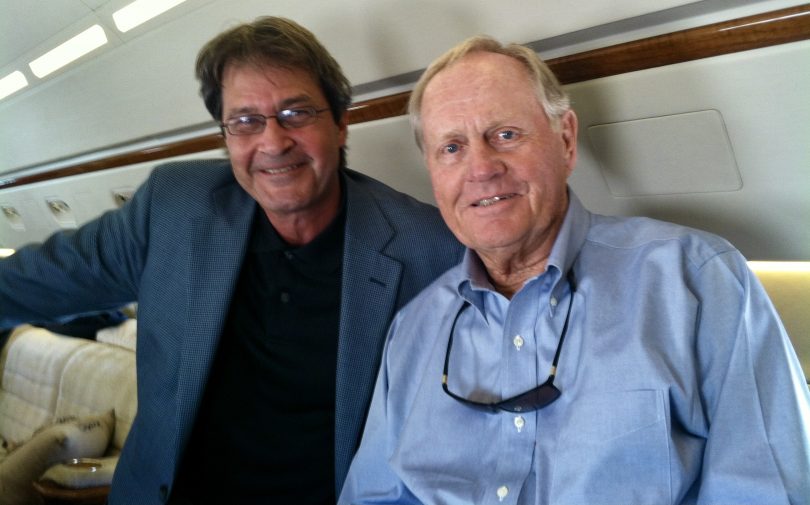
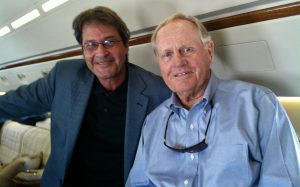
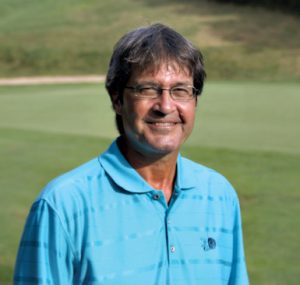






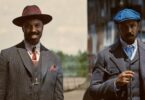


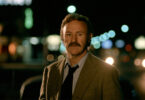


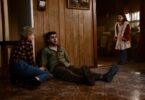
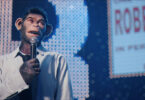



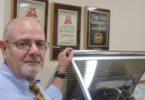


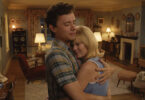

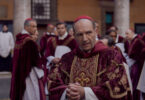
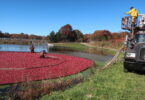

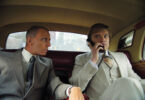
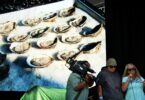
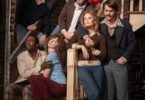


Interesting life you’ve led, Duke. Who’s a thunk it, huh? Nice column. So many icons. I met Bobby Orr and Derek Sanderson at The Ridge Club once and despite being an adult I was still starstruck by my favorite athlete of all time, Orr. And he could not have been nicer or more gracious. It’s cool when your idols don’t have feet of clay. Hope you’re well.